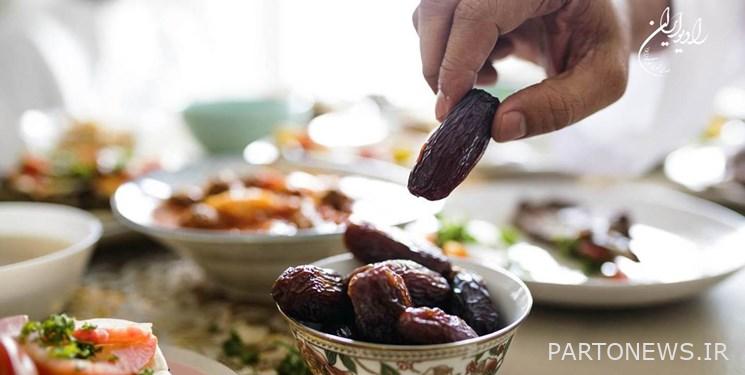How do we endure hunger in Ramadan?

According to Fars news agency’s health correspondent, Ebrahim Daryani, a specialist in gastroenterology and liver and a member of Iran Academy of Medical Sciences, referring to fasting in the month of Ramadan, said: When we eat, more sugar is supplied in the first 4 hours of work, and the most important calories and The energy we need is in the brain; In order for our brain to function, about 5 grams of sugar per hour must be supplied to the brain, which is provided by eating food.
He continued: Most of this amount goes to the liver and is stored in the form of glycogen. After this hour, the body gets its energy from the liver and the body burns the sugar stored in the liver and turns it into glucose. and provides the necessary energy for the brain. If hunger lasts too long, the body is forced to use fat metabolism.
This member of the Academy of Medical Sciences stated: This is why when hunger lasts longer than this, the fuel is removed from fats. In the normal state of fasting, the body uses more glycogen from the liver.
This university professor expressed: Therefore, we will not have a problem to supply the necessary energy to the brain, but in longer hunger periods, we will often metabolize fats instead of sugar; It is the same as, for example, you see people who are starving for a long time gradually lose all their fat.
Daryani pointed out: What is important is the vital organs of the brain, heart, kidney and lungs, which usually supply their energy from glycogen during those 12 to 15 hours of fasting, and it should be said that in those first 5 hours, amino acids, proteins, and fats They are converted to glycogen storage in the liver.
He added: That’s why you see a person has high triglycerides and we say not to eat sugary things. Because sugars are stored and increase in the form of triglycerides in the liver.
end of message/
You can edit this article
Suggest this article for the first page

